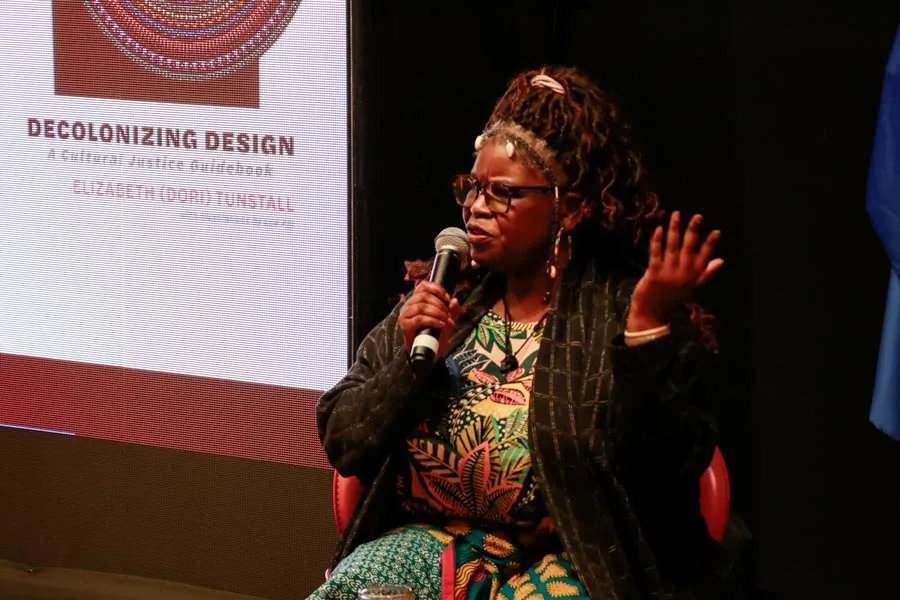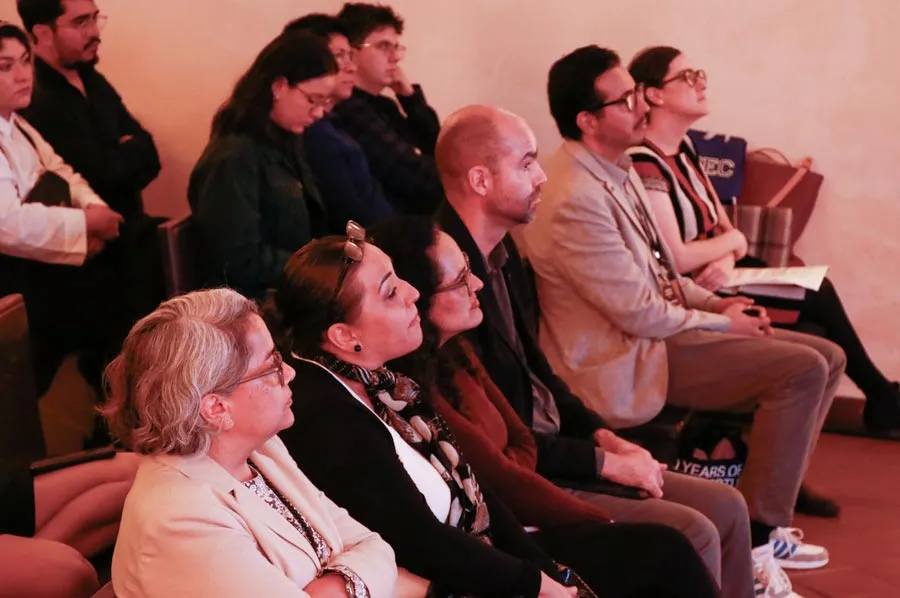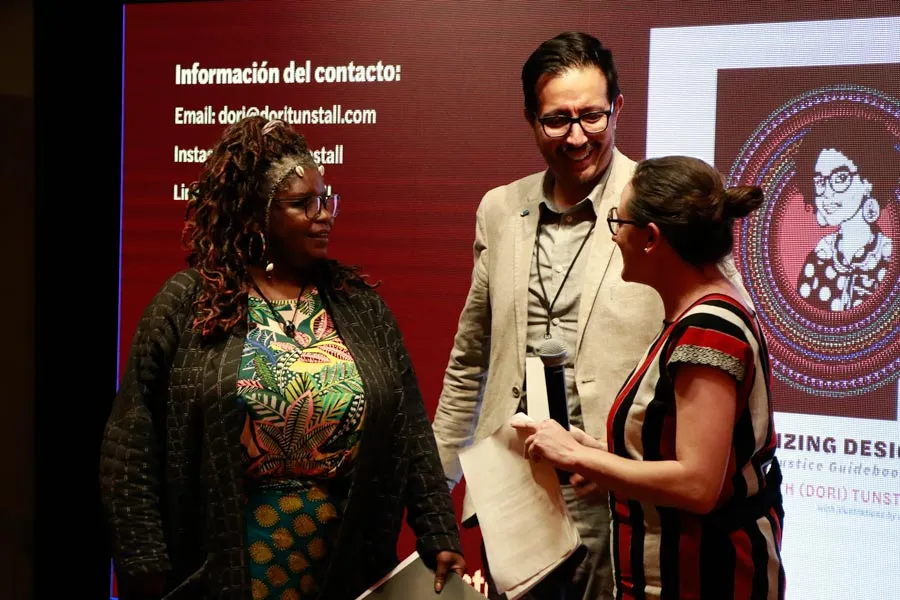Dr. Elizabeth “Dori” Tunstall, design anthropologist, researcher, and the first African American female dean of a design faculty in the world, gave a lecture on decolonizing design at Tec de Monterrey’s Querétaro campus.
As part of the opening of this space and its objectives, Dori Tunstall brought the importance of decolonizing design into the conversation at the School of Architecture, Art, and Design.
The lecture was held as part of the opening of the Alameda Campus, a space whose aim is to strengthen the relationship between education and society. The project is meant to be an open space where anyone is welcome to learn.
The Alameda campus is a project that was created with the aim of uniting education and society to solve the problems that arise in society and for developing the city.

“We have to be more aware of who we’re designing for, because if we’re only designing for aesthetic value, our products won’t have impact and would be short-lived,” said Luis Miguel Gutiérrez Contreras, Director of the Design Department for the South Central Region.
“It is our responsibility as designers to listen to people to really understand their needs.” - Elizabeth Tunstall.
The importance of unlearning
According to Dori Tunstall, European design has been considered the universal way of designing due to colonization on several continents and their way of adopting European culture.
“Over the last 500 years, many things have lost their connection with the community and the land where they come from. Decolonizing design is about reconnecting with our roots,” Tunstall explained.
For the lecturer, design is about being authentic with ourselves and the context in which we find ourselves. Design is about improving the place we are in, so basing our solutions on another culture won’t allow us to solve the problems we face.
“It is our responsibility as designers to listen to people and communities to really understand their needs,” added the designer.
Dori continues explaining that it’s important to unlearn what we’ve learned in order to gain new ways of looking at the context surrounding us.

Tips for design students
The researcher offers two pieces of advice for design students to use as a basis in their professional careers.
1.- Motives and principles
One of the principles presented to students by Dori is finding joy in the world, asking themselves the question: Am I bringing joy to someone with my design?
“It’s important to understand your principles to understand how you want to impact the world,” said the doctor.
The anthropologist recommends that design students understand the values and principles on which they want to base the rest of their projects. After this, it’s important to remain faithful to them in order to create the change they want to see.
2.- Sources of inspiration
She also mentions the importance of expanding your sources of inspiration and broadening your mind to have a better understanding of how you want to make a positive impact.
Dori talks about how increasing your sources of inspiration helps you be selective with what aligns with your values as a designer and really creates the desired impact.
“If you’re going to make a decision, focus your decision on your principles as a designer,” she added.

The future of design
The lecturer spoke about the power of design in making the world a better place. Designing with the goal of making an impact helps create a better world.
The designer recommends that in the process of designing, we have to visualize what type of experiences we want or what things we want to interact with.
“We designers have the superpower to materialize what the world can be,” said the researcher.
Dori says that at times when designing it isn’t always easy to understand if something is positive or negative, which is why it’s important to focus on listening and protecting the people for whom we’re designing for so as not to harm them.
Finally, Dr. Tunstall shared her experience as a design teacher and how inspiring it is to see students’ potential for changing the world.
“It makes me excited to see where design is heading and to see how students have a sense of social responsibility during the process of designing,” she concluded.
READ ALSO:





